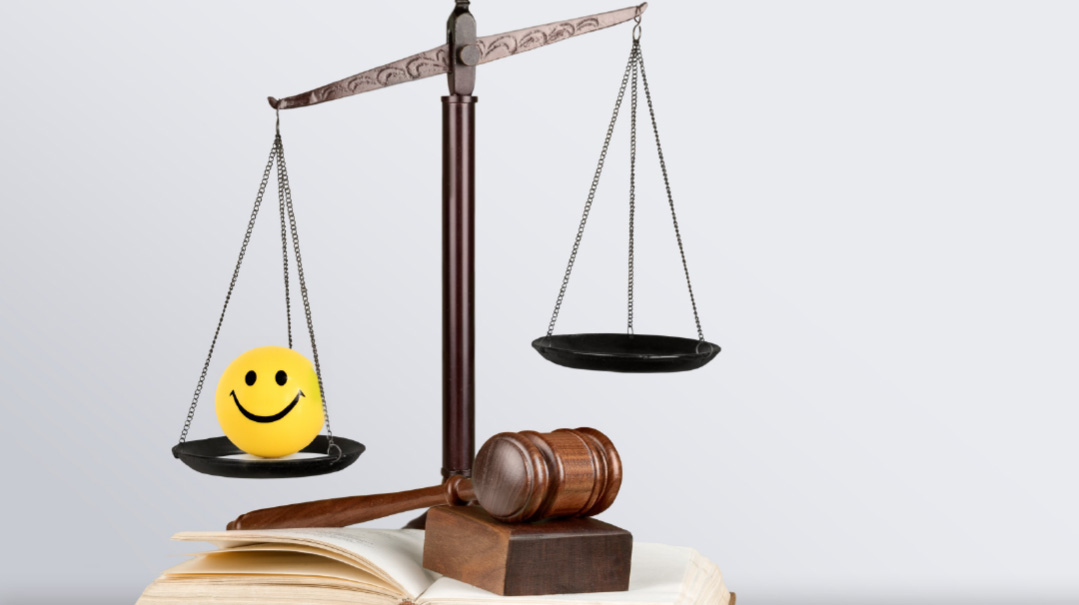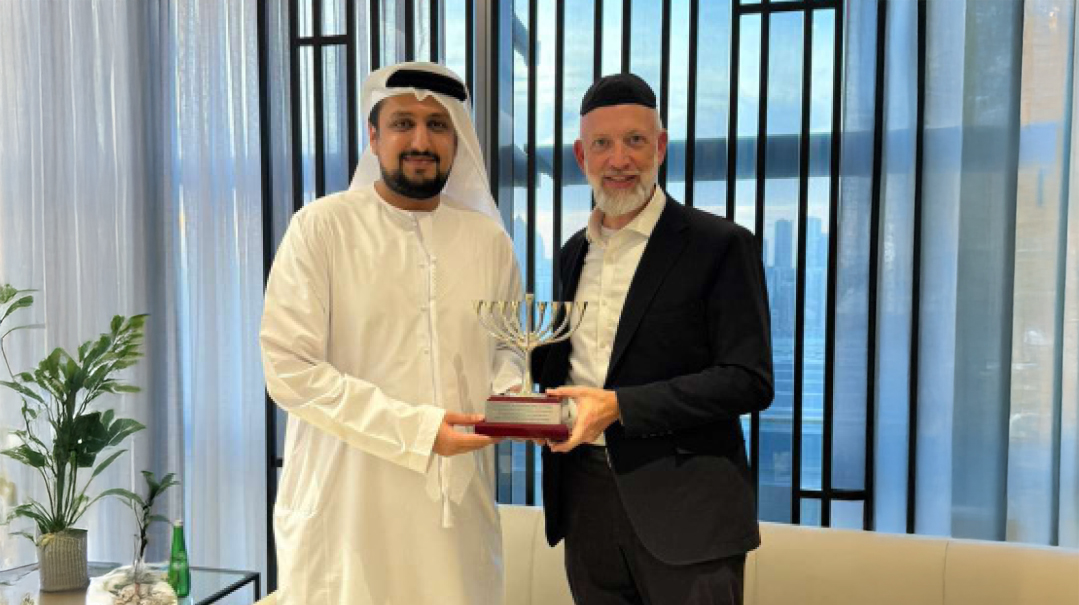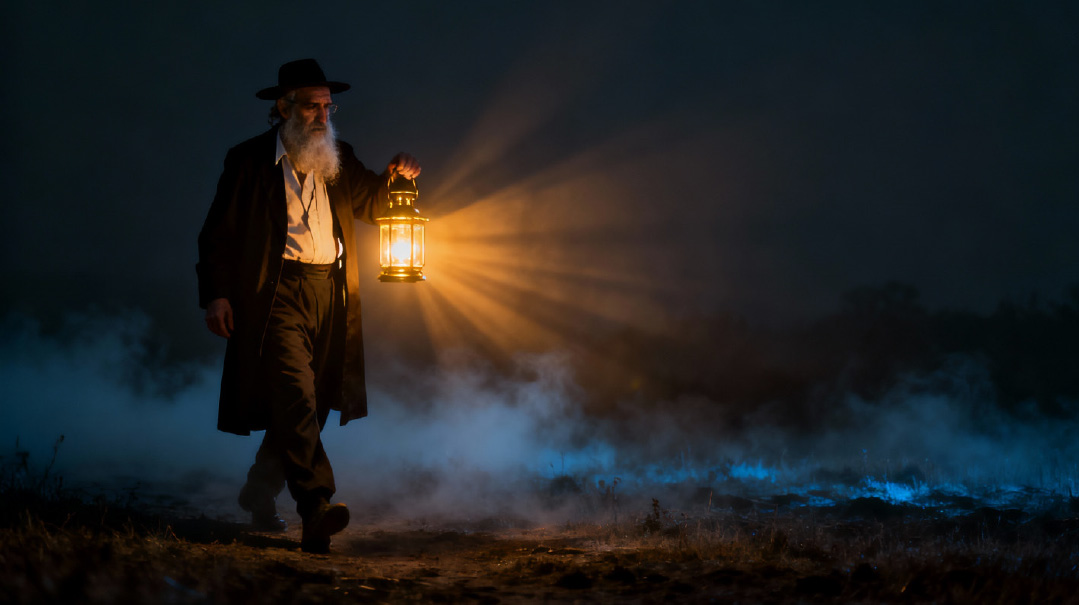Judgment Should Fill Us with Joy
| September 29, 2024This week, we’ll tackle three questions about how to approach Rosh Hashanah

T
he Aseres Yemei Teshuvah: They’re days of incomparable closeness with Hashem. Of ani l’dodi v’dodi li. Of powerful, life-altering opportunity.
Yet for so many of us, they’re also days of anxiety and alienation. Days when overwhelm and despair threaten our efforts to complete the avodah at hand. Days when, more than once, we need to fight the urge to tune out and count down to those Motzaei Yom Kippur rugelach.
It’s time to bridge the gap. This week and next, we’ll clear a path through some of the questions, worries, and struggles we face during these days. And, with Hashem’s help, gain new access to the closeness and meaning waiting for us within them. This week, we’ll tackle three questions about how to approach Rosh Hashanah.
1
“The thought of judgment on Rosh Hashanah and Yom Kippur makes me want to close my eyes and wake up on Succos. How can I approach the Yom Hadin so I feel inspired instead of anxious and scared?”
Perek 96 in Tehillim, part of Kabbalas Shabbos, lays out a fascinating scene. We watch the heavens, earth, sea, and more explode with joy — why? “Ki va lishpot es ha’aretz.” Because Hashem has come to judge the land.
What are we missing? Why doesn’t judgment fill us with joy, too?
A chunk of our din-anxiety comes from confusion around what exactly Hashem is judging. We think we’ll only merit life if we can prove we’ve earned it through our actions over the past year. Since we’re pretty sure we can’t prove that, the Yamim Noraim become a breathless, punishing game of catch-up in which we push ourselves intensely in a desperate attempt to upgrade our image.
This isn’t right. Hashem is the Melech chafetz bachayim. He wants to give us life. He just wants us to use it well. So He gifts us with a yearly judgment. “The past year wasn’t perfect, but let’s focus on the future. If I give you life, what will you do with it? How can you show Me you’ll appreciate My gift, use it well?”
These questions aren’t an interrogation. They aren’t depressing. They’re empowering, rejuvenating. They motivate us to take a fresh leap into the work of becoming our best selves. Which brings the greatest simchah of all.
2
“I know Rosh Hashanah is about coronating Hashem as King, but malchus Shamayim feels so big and out of touch. I struggle davening for it on Rosh Hashanah. Is there a way that malchus Shamayim relates to me personally?”
Rav Yisrael Salanter teaches that if we want to merit a favorable judgment on Rosh Hashanah, we should demonstrate to Hashem that “rabbim tzerichim lo” — that we’re a person the greater community needs.
With this advice, Rav Yisrael isn’t just giving us an “easy pass” to Hashem’s good side. He’s teaching us about the ultimate purpose of the Rosh Hashanah judgment.
Hashem created the world to serve a purpose — to become a home for His malchus to be expressed. Each of us has an essential part to play in glorifying malchus Shamayim and helping the greater community, the greater nation, achieve that purpose.
On Rosh Hashanah, Hashem assesses how each of us is doing in that role. Are we contributing toward His mission? Are we an asset to the community’s effort on His behalf?
Take some time on Rosh Hashanah to think about your unique mission in Hashem’s world and how you plan to further it in the year ahead.
3
“Living in a society where democracy, self-determination, and personal freedom are sacred values, I struggle with the idea of submitting myself completely to a king who demands that His will come before mine. How can I feel more at peace, and more sincere, when I daven for malchus Shamayim?”
The subjects of a king might not enjoy total personal freedom. But they do gain other positives — like, for example, a sense of direction. A collective mission. A path upon which to progress and create.
A life of total freedom, in which nothing else matters except what I want, sounds like loads of fun. But over time, living for nothing creates aching emptiness. It’s only when living for a calling that we feel meaning in our existence, our work, our accomplishments.
In a malchus, the calling is constant. Loyal subjects, each in their own way, can dedicate their lives to their king’s honor and vision. As can we, in Hashem’s malchus. Our King has assigned each of us a unique role in His purpose for the world.
But how do we figure out this purpose, so we can get started fulfilling it?
We’re no longer blessed with neviim. Instead, we need to listen for the messages Hashem embeds in the surroundings and experiences He gives us.
Different things touch or bother or excite or pain different people. Hashem designed humanity that way to give us clues as to how we can use our unique will to fulfill His. As we do our thinking this Rosh Hashanah, a need or cause will likely jump out at us. That’s a message. That’s Hashem drawing us toward it, pointing us toward our purpose.
Three questions. Three puzzle pieces that come together to create a Rosh Hashanah of empowerment, connection, and concrete growth. One in which dread and despair fade away in the light of possibility and renewed motivation. And where being mamlich Hashem becomes a personal, practical avodah. So we can truly experience the Days of Judgment as days of closeness and simchah.
Rabbi Levi Lebovits is the director of the Vaad Project, an initiative to help Jews worldwide find joy, meaning, and fulfillment in their Judaism. He has studied for over 20 years under Rav Reuven Leuchter, and has authored step-by-step guides on teshuvah and the Haggadah.
(Originally featured in Mishpacha, Issue 1031)
Oops! We could not locate your form.







